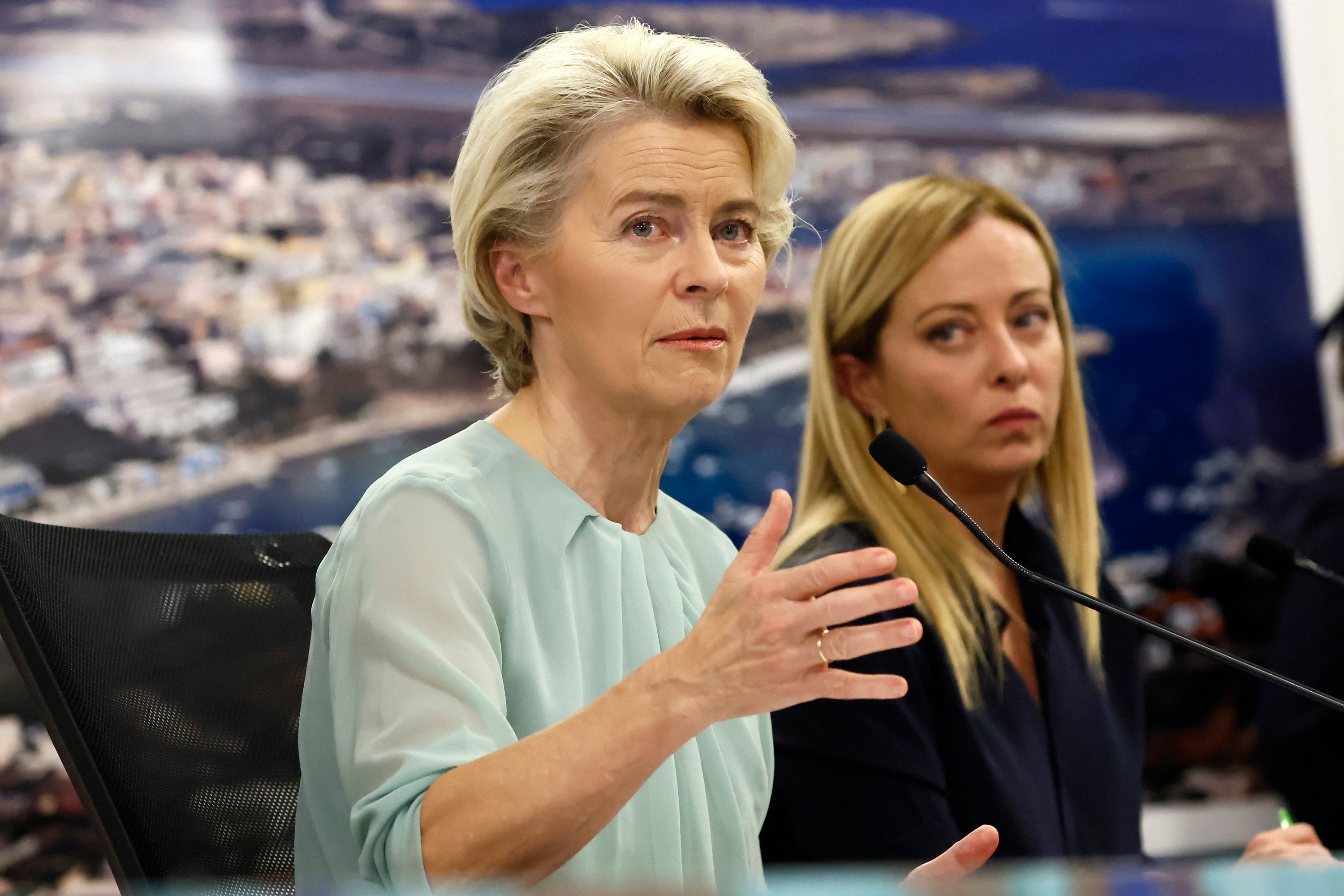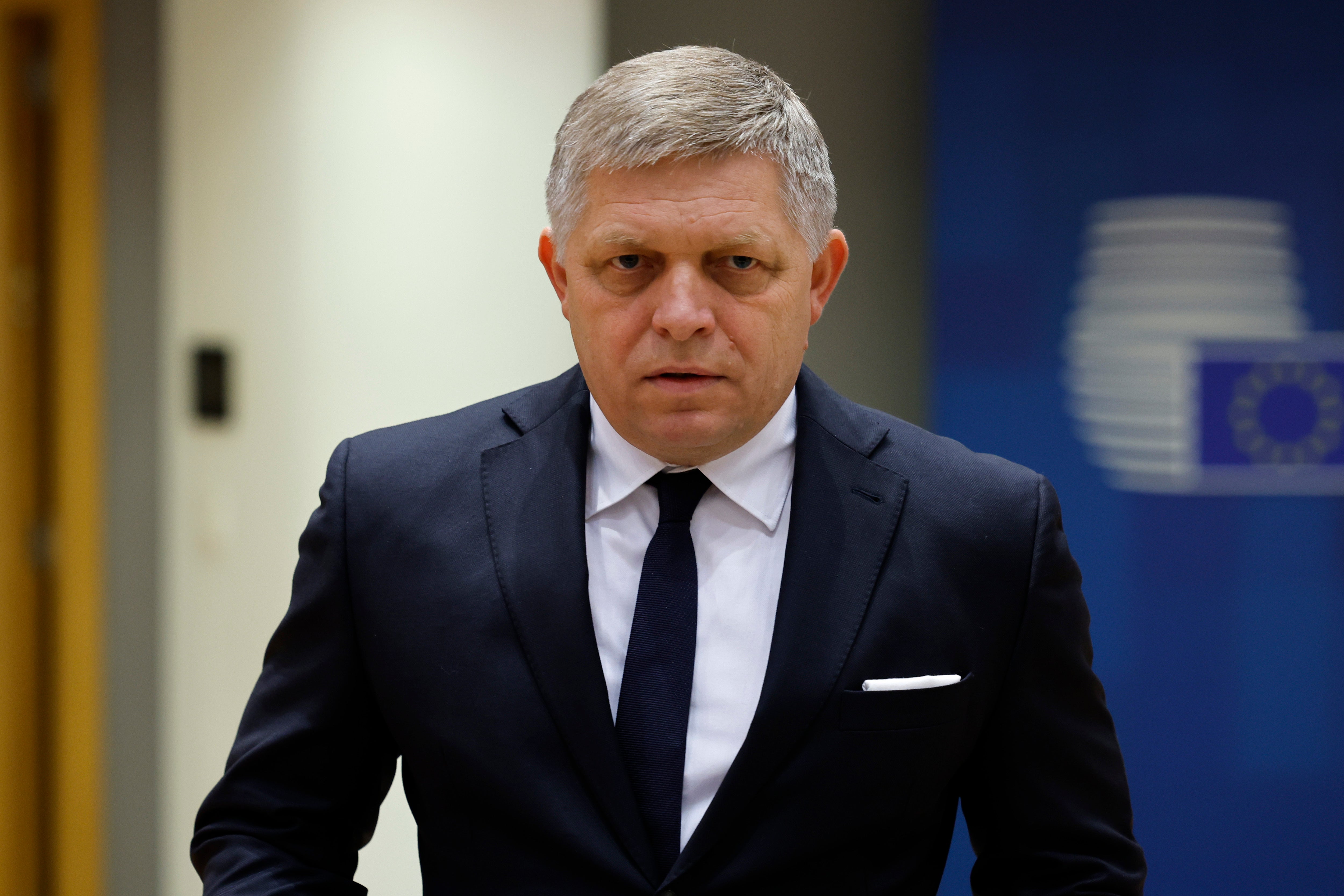Slovakia, Italy and others go to the polls in EU elections under the shadow of an assassination attempt
Italy’s far-right premier Giorgia Meloni warns that ‘vote will decide our next five years’ as she seeks to usurp EU’s centrist hegemony
Slovakia, Italy and the Czech Republic were among five European Union nations casting their votes on the penultimate day of European Union elections, in a race held under the shadow of political violence.
Populist and far-right parties are seeking to make gains across the 27-member union, with Italy’s Giorgia Meloni throwing down a gauntlet to the bloc’s centrist hegemony in warning that their time of European dominance would soon be up.
“This vote will decide our next five years,” Ms Meloni said on Saturday, underscoring her campaign’s push to curtail the reach of the EU institutions dominated by pro-business liberals, and to draw power back to national capitals – a desire she shares with Robert Fico, the prime minister of Slovakia, and Hungary’s Viktor Orban, among others.

As well as being dominated by the looming threat of the far right, with Geert Wilders in the Netherlands enjoying a strong showing on Thursday, voters have cast their ballots under the shadow of the recent assassination attempt on Mr Fico and an assault on Denmark’s Mette Fredriksen.
The Danish premier was forced to call off her final day of campaigning after suffering whiplash when she was assaulted in Copenhagen on Friday – the latest in a series of incidents over recent weeks.
In Slovakia, analysts said the attack on Mr Fico – which sent shockwaves through Europe on 15 May – could boost the chances of his leftist Smer party to win the vote.
Mr Fico, who took office last year on a platform of cutting military aid to Ukraine, has been recovering from multiple wounds after being shot in the abdomen. But in his first public statement since the attack, he issued a pre-recorded video address just hours before the start of the pre-election silence period on Wednesday.

While he did not directly discuss the vote, Mr Fico attacked the EU, suggesting he was a victim because of his views which contrast with the European mainstream, and claimed the mainstream media and liberal opposition were also to blame for the attempt on his life.
The timing of Mr Fico’s message was “no coincidence”, said Sona Szomolanyi, a political science professor at Bratislava’s Comenius University, saying: “It only confirms that the ruling coalition has been using the assassination [attempt] expediently and apparently effectively.”
Latvia and Malta were also casting their votes on Saturday, with the final results of the EU-wide elections set to be announced on Sunday night.
Some 20 countries, including Germany, France and Poland, will cast their ballots for the 720-seat European parliament on Sunday. Seats are allocated based on population, ranging from six in Malta or Luxembourg to 96 in Germany.

Italy has 76 seats, and Ms Meloni is capitalising on her popularity by running as the preferential candidate, despite having no intention of taking a European parliamentary seat.
EU Commission president Ursula von der Leyen has not ruled out a coalition with Ms Meloni’s group of European Conservatives and Reformists – which is now also being courted by French far-right leader Marine Le Pen.
But Ms Von der Leyen – who will be hoping to use Sunday’s results as a launchpad for a second term at the head of the EU – has stressed respect for the rule of law as a quintessential requirement for those seeking power.
In Slovakia, Mr Fico’s government has made efforts to overhaul public broadcasting, in a move critics warn would hand his government full control of public television and radio, and has plans to amend the penal code to undercut corruption prosecutors.
With such policies sparking fears Mr Fico could lead Slovakia down a more autocratic path, thousands have repeatedly rallied in the capital and across the country to protest against Mr Fico’s policies.
In Malta, European parliament president Roberta Metsola – Ms Von der Leyen’s ally in the Christian Democrat centre-right European People’s Party – proudly proclaimed “duty done” as he cast his vote.
Mr Metsola urged EU citizens to go vote, “or others will decide for you”.
While in 2019, barely half of eligible voters took part, predictions have shown turnout this year could exceed 70 per cent.
Additional reporting by agencies
Join our commenting forum
Join thought-provoking conversations, follow other Independent readers and see their replies
Comments
Bookmark popover
Removed from bookmarks